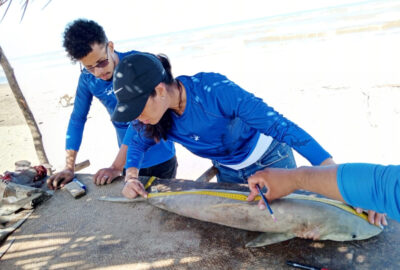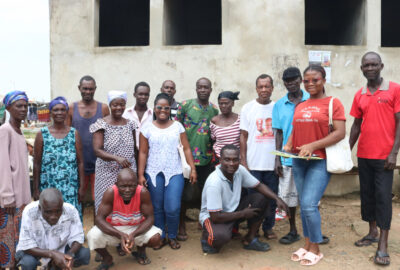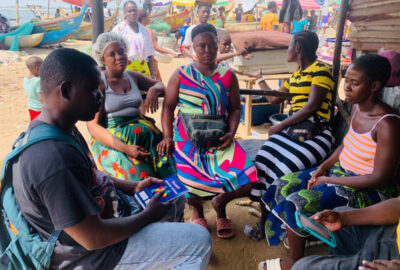Construction Update: As we enhance the look and feel of the Aquarium and make structural improvements to the penguin exhibit, some exhibits are temporarily closed, and the penguins are off exhibit until February 13. Learn more.
Beyond Science: The Transformative Power Of Environmental Education
Hear from MCAF Fellow Ariana Oporta-McCarthy on how teaching children about the ocean impacts sea turtle conservation in local communities across Costa Rica.

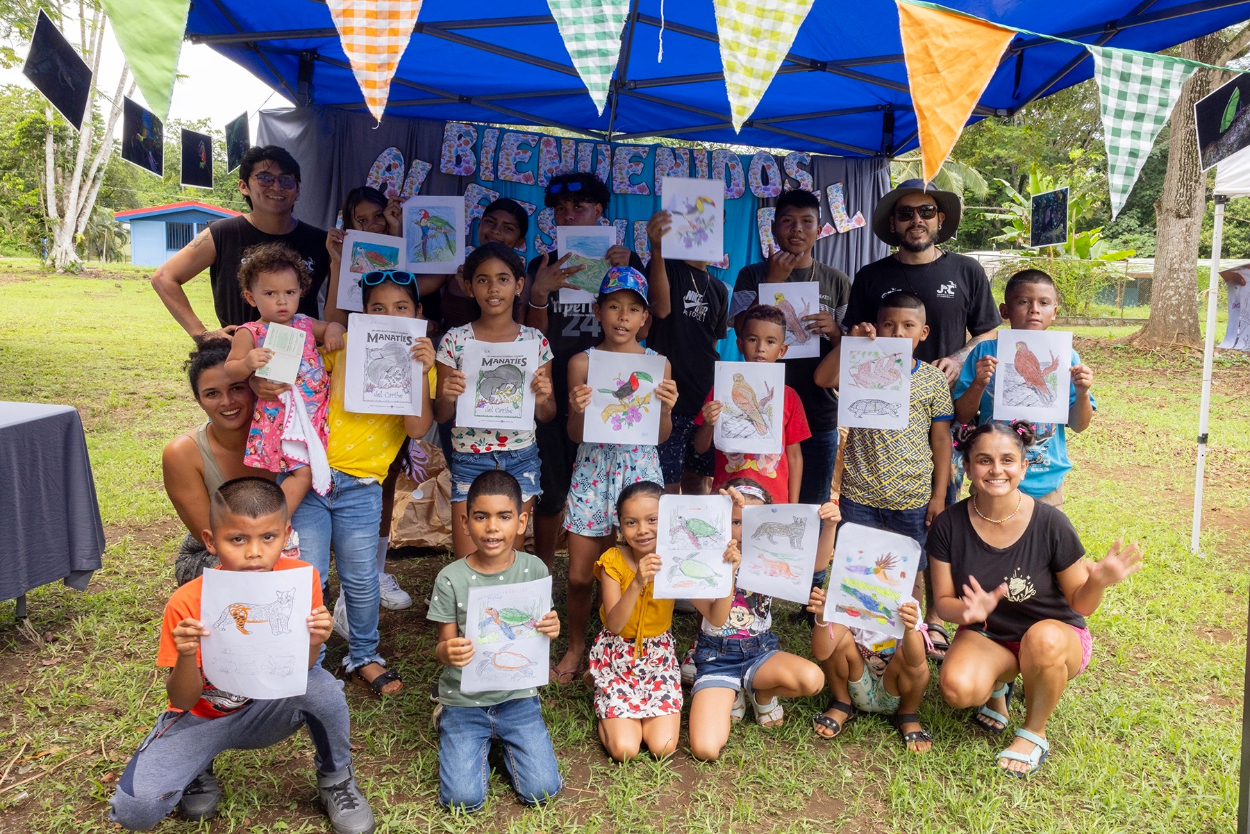
By Ariana Oporta-McCarthy
This post is one of a series on projects supported by the New England Aquarium’s Marine Conservation Action Fund (MCAF). Through MCAF, the Aquarium offers multi-faceted support to leaders from low- and middle-income countries who are spearheading community-based ocean conservation initiatives.
Under a beautiful Caribbean sky and among the tracks of sea turtles, a connection was born that transformed my life forever. I grew up between two worlds: that of hunters and that of science/conservation of these ancient species. Three decades later, that curious little girl became a marine biologist and found, in environmental education, the most powerful and transformative tool.
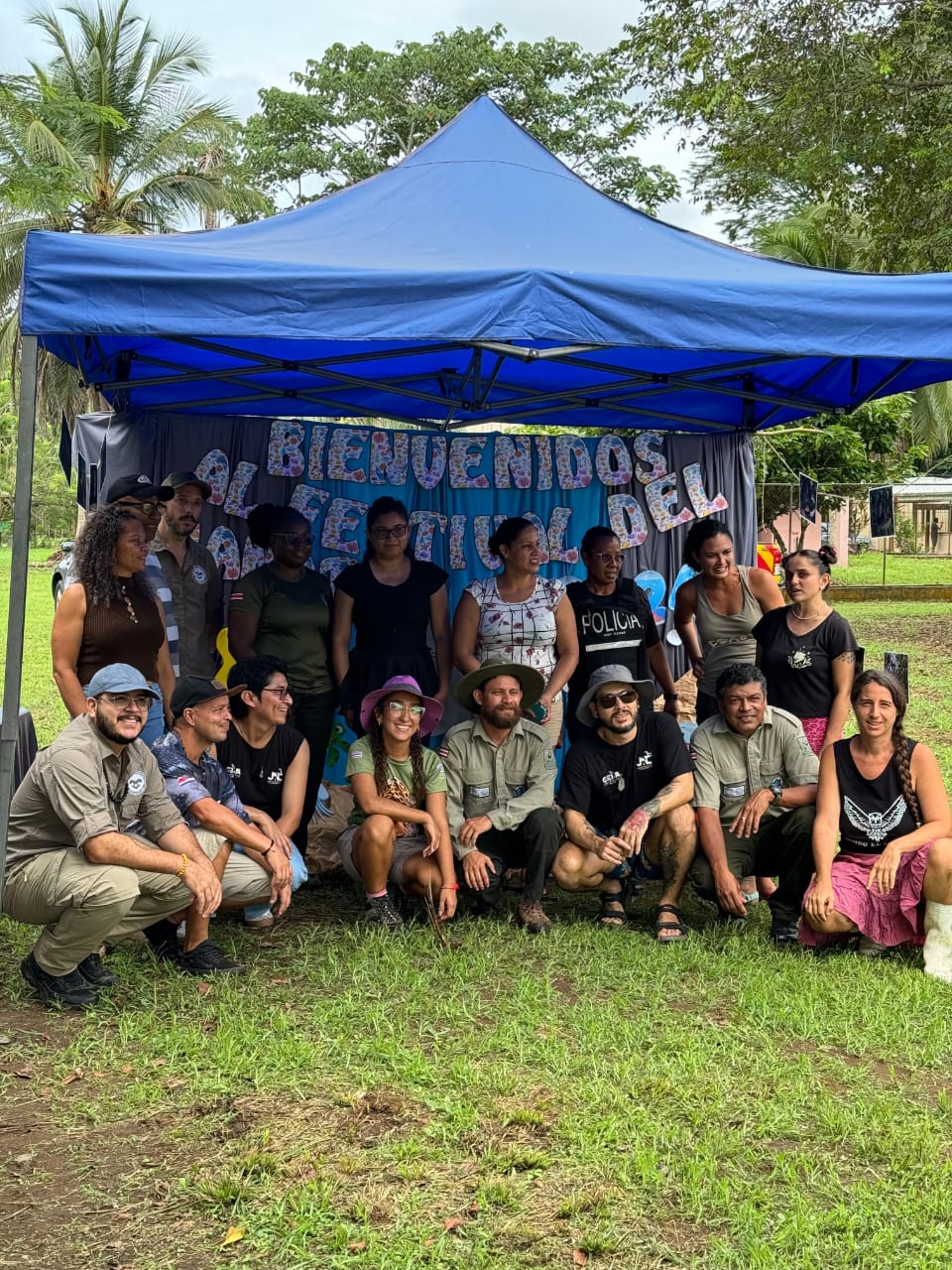
Today, I am the product of a whole generation of conservationists who understand that real change happens when communities are actively involved, and who believe in the importance of empowering new generations to ensure a future of harmonious coexistence with our surroundings.
In Costa Rica, environmental education is key to breaking the cycle of poverty and environmental degradation—especially in the Southern Caribbean, a historically underserved region. Biodiversity is a national treasure, and ecotourism is a vital source of income. Therefore, sustainably managing these resources ensures jobs, boosts the economy, and helps address environmental challenges.

Our community-based approach and strategic partnerships allow us to bring environmental education to more children, thanks to collaboration with other organizations in our region, which complements our work with the Marine Conservation Action Fund (MCAF) community beautifully. Some examples of community activities carried out in partnership include family events to celebrate Ocean Day, the Manatee Festival, National Parks Day, and excursions to Gandoca Beach to learn about our scientists’ work and participate in beach cleanups. We also hold workshops in Ministry of Education schools using innovative tools like virtual reality to explore the ocean and learn about sea turtles. Teamwork amplifies our impact!
Environmental education, more than a science, is a transformative force that connects communities with marine life—where every protected nest and every released turtle reflects the power to heal both ecosystems and hearts. In this silent dialogue between humans and sea turtles, we discover that conservation is not just about counting hatchlings but about telling stories of lives changed—of generations learning to care for the sea as a part of themselves. Protecting sea turtles is ultimately about protecting the soul of our communities and writing, together, the future of the ocean.

